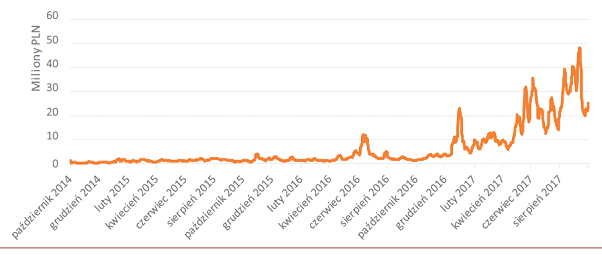A crypto exchange is a place for trading cryptocurrencies. Unlike the securities traded on stock exchanges, cryptocurrencies are not managed by national legal systems, and in most countries they are not subject to any statutory regulation. Only a few countries have banned trading and holding of cryptocurrencies, and these include as Bangladesh, Bolivia, Ecuador, and Kyrgyzstan. Crypto exchange platforms make up the central part of the entire digital asset ecosystem, and are used for trading in Bitcoin and Altcoin, such as Ethereum, Litecoin, Cardano and Ripple. Most exchange platforms are centralized and are managed by a group of people who derive income from commissions and other services. They are not controlled by supervisory authorities, and this means that they are unaffected by politics, central banks, and fiscal policies.
At present there are hundreds of cryptocurrency exchange platforms, while they differ in terms of transactions, level of security, and listing advantages. The development of new business sectors and trade was possible due to the development of technologies and globalization. As use of the Internet became widespread, business could be transacted remotely without using bank notes. The main idea and the purpose of creating Bitcoin and other cryptocurrencies were described by the founder or founders, who use the pseudonym Satoshi Nakamoto. The fundamental principle of blockchain, the technology on which all cryptocurrency is based, is that funds can be transferred directly between two parties, without a go-between (especially a financial institution). Over the decade that followed, Bitcoin had an immense impact on the economy globally.
The phenomenon of this financial instrument is that it only uses a contractual exchange rate determined by market supply and demand, with no financial or legal coverage. The market capitalization of cryptocurrency reached around USD 300 bn in the first half of 2022, which is the value of JP Morgan & Chase, founded in 2000, one of the fifteen top rated companies in the world.
The European Parliament, the European Central Bank, and European Banking Authority have defined cryptocurrency as ‘a digital representation of value that is neither issued by a central bank or a public authority, nor necessarily attached to a fiat currency, but is accepted by natural or legal persons as a means of payment and can be transferred, stored or traded electronically’. In 2012, the European Central Bank defined virtual currency as a ‘type of unregulated, digital money which is issued and usually controlled by its developers, and used and accepted among the members of a specific virtual community’. The European Central Bank added that as virtual currency, cryptocurrency is not tender that is guaranteed by any government or central bank, however, it may be subject to state regulations. Scientific institutions have defined cryptocurrency in a similar way, as virtual currency not issued by any central banking authority being a point of trade between the issuer and user or group of users acting as an universal equivalent within a given network and within strict boundaries, used for the purchase of virtual assets (such as Metaverse cryptocurrency).
The turnover of crypto exchanges in Poland
The year 2017 saw a large increase in interest in cryptocurrency in Poland. Daily turnover on the crypto exchange increased by 1450%, and this figure was calculated by compering average daily turnover in the first week of October 2016 to average daily turnover in the respective period in 2017 (chart 1).

Chart 1: Daily turnover on the cryptocurrency exchange market in Poland (in million PLN)
Source: M. Kacwin, K. Piech, Stan rynku kryptowalut w Polsce oraz możliwe przychody podatkowe budżetu państwa, PDF file, [access date: 16 January 2023], p. 3.
The total turnover for 2016 (period between 08.10.2016-07.10.2017) amounted to PLN 5.50 bn (chart 2).

Chart 2. Cumulative annual turnover (in million PLN)
Source: M. Kacwin, K. Piech, op. cit., p. 3.

Chart 3. Percentage increase in annual turnover in comparison to 2014 (period between 08.10.2014-07.10.2015)
source: M. Kacwin, K. Piech, op.cit., p. 4.
There are five major crypto exchanges in Poland, which are Bitbay, Bitmarket, Bitmarket24, Coinroom and Nevbit. However, since it was created, the cryptocurrency market has provoked much controversy and concern regarding the risks associated with trading in virtual currency. The crash of the FTX exchange caused an outflow of capital from cryptocurrency. Originating from the USA, the company FTX was at the beginning one of the largest cryptocurrency exchanges worldwide, with turnover amounting to tens of billions of USD before it went bankrupt. Investors are already skeptical because of the stability of cryptocurrency and its security. The broader consequences on the cryptocurrency market are unknown, but this large collapse in cryptocurrency’s short history may deter a lot of investors. The confidence can be restored by regulation advocated by the most fervent opponents. For a long time, the listing of Bitcoin has been correlated with the listing of the NASDAQ Index but after the downfall of FTX the price of Bitcoin started to decline.
Over the last few years, there have been many cryptocurrency projects introduced. A similar situation occurred during the technology boom at the beginning of 2000. The dot-com bubble crash cleansed the market and only the most profitable companies survived it to become later global leaders such as Microsoft or Amazon.




